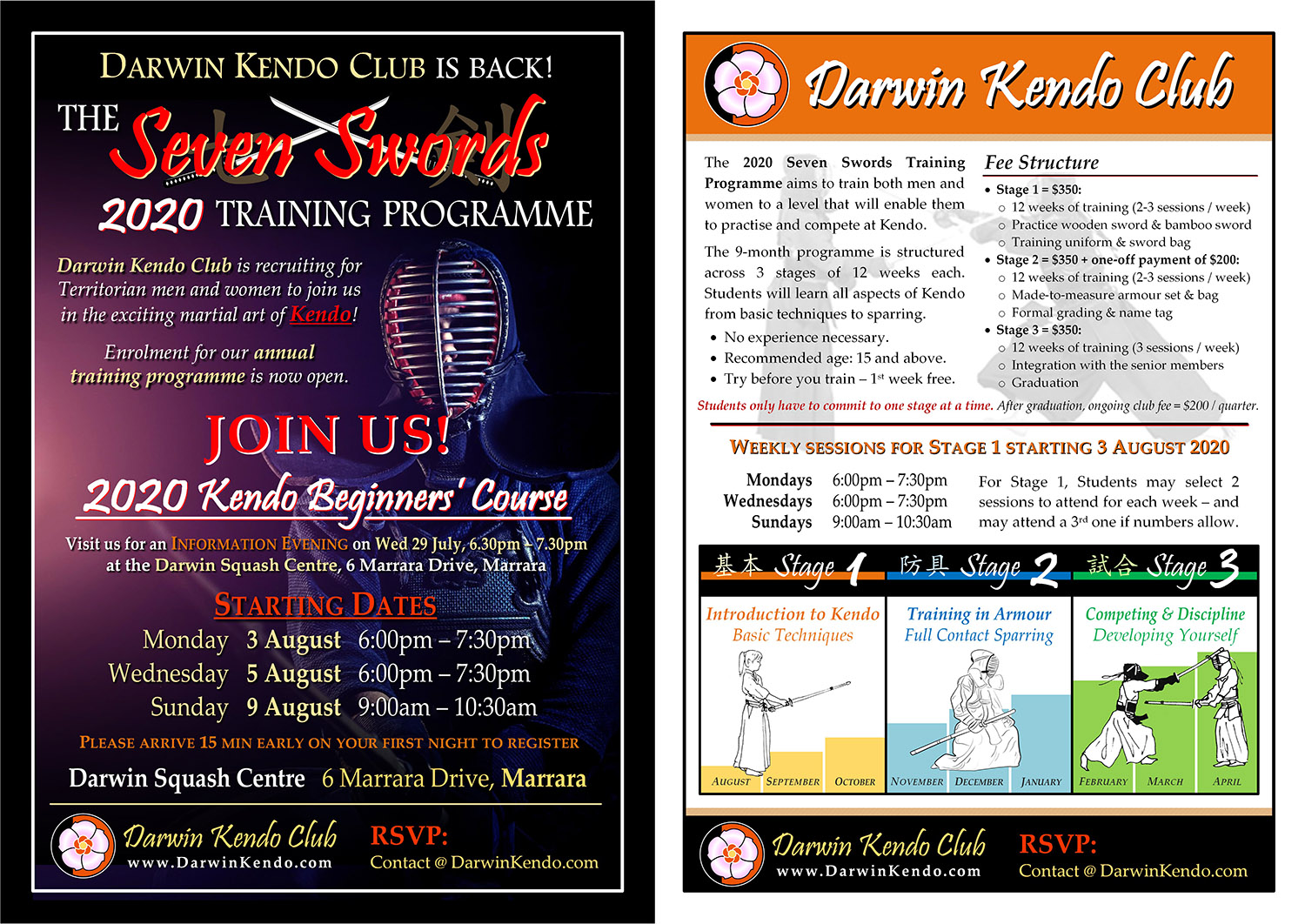What is Kendo?
Kendo (剣道), meaning the way of the sword, is a Japanese martial art based on hundreds of sword styles and schools dating back hundreds of years. Kendo is a mix of tradiational martial art and modern sport - providing an opportunity for character development and improvement through discipline and respect, as well as challenge players through friendly competitions at various levels across many divisions – as individuals or teams.
The concept of Kendo is to discipline the human character
through the application of the principles of the katana (sword).
Kendo senior practitioners wear protective gear (bogu) designed after the traditional samurai armour, and use bamboo swords (shinai) to practice the strikes. Despite being a full-contact combat sport, techniques in Kendo are very controlled, with a large focus on proper form and elegance in the way we move our body. There are four specific target areas in Kendo, which are well-protected by the armour: the head (men), forearm (kote), torso (do), and throat (tsuki) for advanced players.
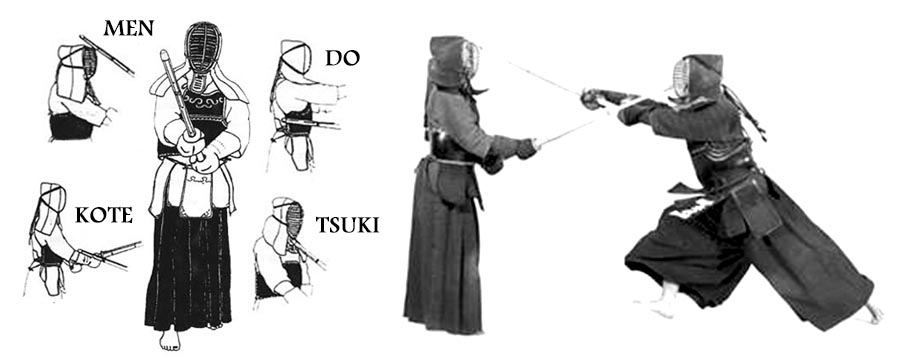
Kendo allows practitioners to work on self-improvement and discipline, improve their fitness, and participate in the growing local, interstate, and international community of Kendo or fans of martial arts in general; as well as experience a unique aspect of the Japanese culture, woven into our own Australian lifestyle. Kendo in Australia is practised by over 1,200 members, growing steadily.
What is the Seven Swords Training Programme / Beginners' Course?
About the Training Programme / Beginners' Course
The Seven Swords Training Programme is a 9-month training programme catered towards two levels of Kendo practitioners - Beginners and Seniors. Key goals of the training programme includes continuing the development of Kendo and its community in the Northern Territory, as well as field a team of players to represent NT at the next annual Australian Kendo Championships.
New starters will join the Beginners' Course across three stages, each spanning 12 weeks.
- Stage 1 focuses on the foundations: etiquette, terminologies, footwork, body movements, how to hold a sword, and basic strikes.
- Stage 2 allows Beginners to put on armour, and the lessons are focused on partner work, building up to sparring.
- Stage 3 integrates the Beginners with the Seniors, and will focus on refining the basics with advanced training methods.
Beginners will only need to commit to one Stage at a time.
The first Seven Swords Training Programme was held in 2018 to great success, breathing a new life to the club. Nine months of hard training paid off when we stormed the Australian Kendo Championships 2019 in Perth, WA - 14 members attended to represent NT, consisting of 10 fresh Beginners and 4 Senior competitors - securing third place in the Men's Kyu Teams and Women's Kyu Teams.
To explore our journey, please start with our documented story, The Road to AKC - Part 1.
Training Structure and Fees
The club trains at Darwin Squash Centre, 6 Marrara Drive, Marrara.
The Beginners' Course offers three sessions per week. For Stage 1, the session times are:
- Monday 6:00pm – 7:30pm (1.5 hours).
- Wednesday 6:00pm – 7:30pm (1.5 hours).
- Sunday 9:00am – 10:30am (1.5 hours).
Beginners are able to choose 2 sessions to attend per week. If numbers allow, Beginners may attend all 3 sessions.
The fee structure has been designed to be spread across the entire 3 stages, to minimise the usually high up-front cost (to purchase equipment). The fees for each stage and what they cover are as follows:
STAGE 1 |
STAGE 2 |
STAGE 3 |
$ 350.00 |
$ 350.00 + one-off fee of $200 |
$ 350.00 |
|
|
|
What do I need to prepare for Stage 1?
First of all, please RSVP to guarantee your spot, as they are limited!
Please arrive ~15 minutes before your first training to ensure that we can take care of registration and paperwork efficiently. Wear something comfortable for exercising in. As Kendo is done barefeet, do not wear anything that goes down past your ankles. The club will supply you with the club wooden swords, until your equipment has arrived.
If you have any special needs or concerns, please let us know, and we would be very happy to discuss.
How safe / dangerous is Kendo?
For Beginners, Kendo training will mostly consist of footwork, swinging exercises (suburi), and some non-contact partnered work. Occasionally Beginners may have the opportunity to practise striking Seniors in armour, however Beginners will not get hit at all.
For Seniors practising in armour, Kendo is considered a full-contact combat sport. While sparring is a part of Kendo at this point, the majority of the training consists of drills where players are partnered up and take turns hitting one another, practising a specific technique one at a time. This allows for a very controlled approach to safe training, as the emphasis is always on correct form and using the proper techniques, with minimal strength.
Target areas are completely covered by the padded armour. Additional protection such as wrist pads can be worn if desired. Occasional misses can happen, resulting in small bruises - however in most cases, the worst you will experience is getting blisters on your feet and hands. Kendo is probably the safest full contact sports there is.
As our club is affiliated with the national organisation Australian Kendo Renmei, all our members will be covered by any injuries and personal liability insurance, should anything happen during training or formal club events.
Who is able to do Kendo?
Kendo is one of the most accessible martial arts and combat sports available to everyone. In Japan and some parts of the world, Kendo is taught to children as young as 5, and practised by people up to their 80s and 90s. The average age of practitioners is usually around mid-30s, with many "late-starters" well in their 50s.
Physical fitness, speed, and flexibility are always an advantage, but they do not trump over mastery of skill, sense of timing, and mental prowess. It is common for older Kendo masters to easily beat younger players purely out of skill.
Our club is currently assisting a student under the National Disability Insurance Scheme (NDIS). If you have any special needs or concerns, please let us know and we would be happy to have a chat!
"The sword is a powerful equaliser", which allows Kendo practitioners to reach a fair middle ground. Whether you are young or old, male or female (or anywhere in between), fit or unfit - you can learn something from Kendo.
Who are the Instructors?
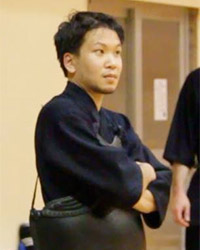
|
Bernard Yehuda, Kendo 4th Dan
|
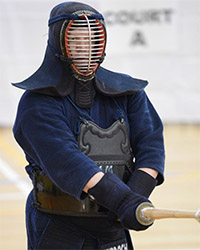
|
Nigel O'Brien, Kendo 4th Dan
|
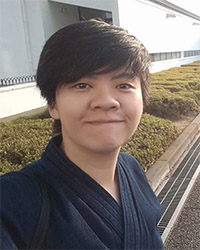
|
Audrey (Yeen May) Looi, Kendo 4th Dan
|
Contact
Bernard / Nigel / Audrey • Contact@DarwinKendo.com
Facebook: Darwin Kendo Club Group • Darwin Kendo Club Page




